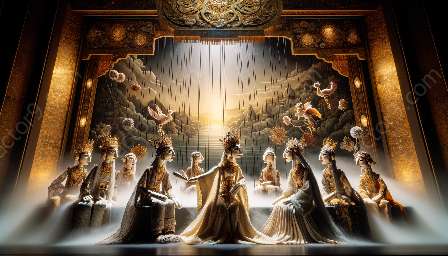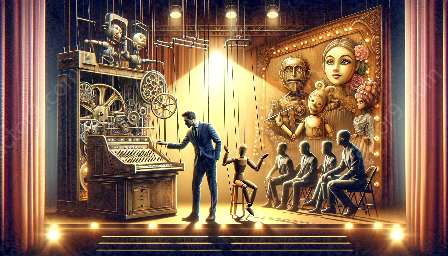Exploring the Intersection of Ethics, Puppetry, and Intellectual Property
Understanding Copyright and Intellectual Property in Puppetry
Puppetry as an art form involves the creation and performance of original works. However, practitioners often encounter ethical dilemmas related to copyright and intellectual property rights when incorporating existing materials or creating new works inspired by others' creations.
Copyright and intellectual property laws protect original artistic creations, including puppetry performances, scripts, designs, and characters. Puppetry practitioners must navigate these laws ethically to ensure their work is both legally and morally sound.
Ethical Dilemmas in Puppetry
When creating original puppetry works, practitioners may face various ethical dilemmas:
- Adapting or interpreting existing stories, characters, or art
- Using copyrighted music, images, or other media in performances
- Balancing the right to create transformative works with respect for original creators
- Collaborating with other artists and managing shared intellectual property rights
Strategies for Navigating Ethical Dilemmas
To navigate these ethical dilemmas, puppetry practitioners can employ several strategies:
- Obtain Permission and Licensing: When incorporating copyrighted materials in puppetry works, practitioners should seek permission and obtain appropriate licenses to ensure legal use and support original creators.
- Create Original Content: Emphasizing the creation of original characters, stories, and designs can mitigate ethical concerns and showcase the practitioners' creativity.
- Engage in Fair Use: Understanding the principles of fair use allows practitioners to responsibly use copyrighted materials for purposes such as education, criticism, and parody.
- Document Collaborative Agreements: Clearly defining intellectual property rights and responsibilities in collaboration agreements helps manage ethical issues related to shared creations.
The Role of Ethics in Puppetry
Adhering to ethical principles is essential in puppetry to maintain the integrity of the art form and respect the rights of creators. Ethical behavior not only upholds legal standards but also fosters a culture of mutual respect and innovation within the puppetry community.
Final Thoughts
By understanding and addressing ethical considerations related to copyright and intellectual property, puppetry practitioners can navigate complex dilemmas while continuing to create original, impactful works that honor both legal and moral standards.


























